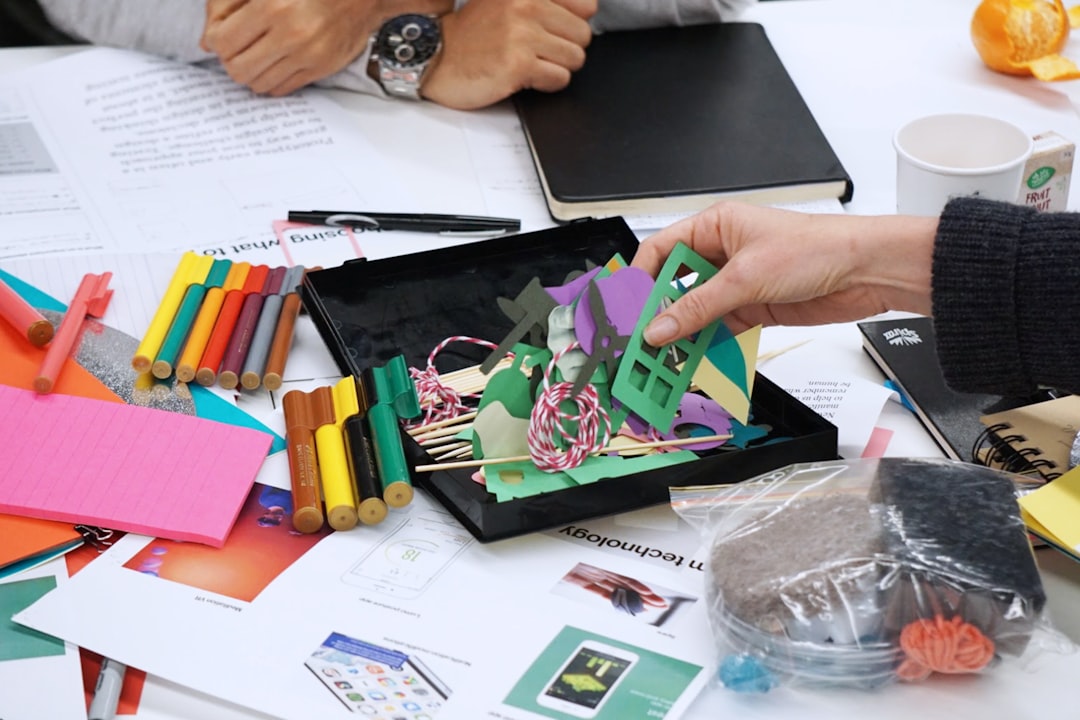Is the Next Customer Experience (CX) Revolution Creative-Led?

Customer experience (CX) is a relatively young, ever-changing discipline. Evolving from customer support and marketing, customer experience traditionally focused on governance and management. However, more creative professionals and even branding agencies are expanding into the customer experience realm. Will the next CX revolution be driven by creatives? Here’s why I think it will be.
What we’ll cover:
- More Creative Customers
- Rapid Cultural Shifts
- Creativity Valued
- Age of Experimentation
- Let’s summarise
More Creative Customers
Let’s start with emerging customers. The younger customer today consider themselves more creative than previous generations. According to Adobe Educate, Gen Z is more likely to describe themselves as creative, “always looking for a better way to do something”. This comes as no surprise with the increase in expressive digital platforms and information access. Whether YouTube, TikTok, Etsy, Instagram, Dribbble or Medium, customers of all ages realised creativity comes in many forms, and execution levels. Customers expect experiences and brands that understand and foster this need for creativity.
Gen Z are looking for opportunities to express themselves beyond product purchases. PSFK Research highlighted that Gen Z values self-expression more than millennials. This is why creative, micro communities are emerging daily, whether customer-led or brand-influenced. This rising demand is also pacing with creative learning opportunities online, from influencers to educational platforms like Coursera. Yes, the creative class is growing. Everyone from make-up artists to lifestyle podcasters, YouTube video gamers to DIY lovers or self-taught tinkers are now considered creative.
Rapid Cultural Shifts
It’s important to note that customer experiences occur within a greater cultural context. Cultural shifts tell us something about customer’s changing beliefs, behaviors and needs. Within branding, experience or creative-led marketing agencies, contextualising and predicting the longevity of cultural shifts drives ideation and decision-making. This is a skill in itself as it requires a knowledge of both customers and society at large. Many times this is done to understand if a new direction, campaign or overarching concept will resonate within the greater societal context.
Let’s take an example of luxury hospitality. Today, the definition of status changed. Luxury customers are looking for transformational experiences over expensive products. Without understanding the cultural context, it’s difficult to apply this learning to a future-looking customer experience. This emerged from recession aftershocks cracking lifestyle facades and feelings of stability. Younger generations saw that ownership, especially with increased access to products, didn’t hold the cultural cache to remain a status symbol. Thus, it’s not just experiences that are important for the luxury customer, but meaningful, unexpected and rarified experiences.
Creativity Valued
“Creative companies create products that give their customers new experiences or add value to their life. They have incredible focus on the customer — they constantly worry about how to delight and inspire customers in new and different ways. This directly impacts the bottom line.” -SVP customer experience, global technology company
Though creativity can still feel like magic to some stakeholders, it is more valued than ever by businesses. Creativity leads to greater market share and revenue growth, as well as improved employee experience. However, there is a disconnect. A study by Forrester and Adobe found “despite the perceived benefits of creativity, 61% of companies do not see their companies as creative”. This means there is a lot of work to be done toward reaching the creative aspirations that many companies have.
An industry around design thinking commercialised parts of the creative process for all. However, thinking like a designer is more complex than following preordained steps. It requires relationships and guidance as creativity is uncomfortable, leading to many teams going too practical too soon. There is no one-size-fits all for any project or company from a creativity perspective. Agencies specialising in branding, experience or creative-led marketing know this, as many times ideation workshops are cross-functional and require specialised tools.
It’s not just external players that will drive the creative revolution, but also individuals within companies. Creative people are highly valued due to their contribution to business success as they are able to adapt to any situation. According to ‘The Creative Personality’ in Psychology Today, the strength of creatives lies in their ability to carry contrasting traits such as playfulness and discipline, imaginative and realist, extroverted and introverted, rebellious and conservative, passionate and objective.
Age of Experimentation
Why is this a revolution? In spite of the overwhelming support for creativity from a customer and business perspective, there needs to be a spark to change our ways. It’s no surprise today the shopping journey and our relationship with brands has been upended. Customers are looking for new ways to discover and purchase products, while companies are reevaluating, well, everything.
In times of uncertainty there’s much to gain by applying creative methods. With this realisation, companies are (or will be) looking for new approaches to customer experience (CX) that break traditional methods. Creative professionals and agencies can be those agents of optimistic, future-looking change. Such individuals and teams are constantly searching for ways to realise a better future by cross-pollinating ideas, entertaining divergent perspectives and suspending judgement long enough to discover tomorrow’s approach. Experimentation is essential for growth, and creativity will lead us there.
Let’s summarise
- The younger customer considers themselves more creative than previous generations
- Shifts in customer needs and culture at large signals toward greater creative engagement
- Creativity is valued by companies, but many do not know how to obtain it
- Creative agencies or individuals can be the change agents necessary
- With our norms upended, this is the time to increase creative initatives